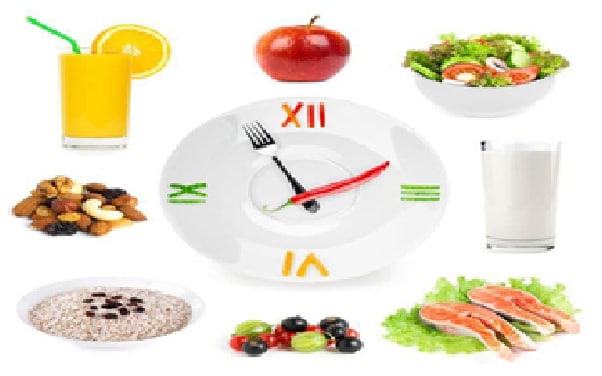Diet itself can mean a person’s behavior in consuming food or drinks. Meanwhile, what is meant by a healthy diet refers to the consumption of food that contains all the nutrients, such as carbohydrates, proteins, fats, minerals, and vitamins at the levels required by the body.
Tips for maintaining a diet
- Not only regularly scheduled, a good diet actually chooses the types of food that enter the body
Generally, the meal schedule is divided into three main times, namely breakfast, lunch, and dinner. However, according to dr. Cut, actually there are five times to eat, you know. The other two are time for snacks or snacking, which can be done between main meals.
In addition to paying attention to when to eat, the type of food that enters the body should also not be careless. When eating large, there should be a menu of vegetables, carbohydrates, and protein in it; 50 percent vegetables and fruit, 25 percent protein, and 25 percent carbohydrates.
- The best snacks are vegetables or fruit
- Talking about snacks, maybe what comes to mind are various cakes, fried foods, packaged snacks, and so on. However, the healthy snacks referred to by dr. Cut is not like that. Snacks in a healthy diet are vegetables and fruit.
- How to cook affects the nutritional content that enters the body
Not only the type of food, the way of cooking is also an important component in maintaining a healthy diet. Frying, said dr. Cut, is an unhealthy way of cooking and you should replace it with other cooking methods. Boiling or steaming is said to be healthier in maintaining the nutritional content of cooked vegetables. However, the process also needs to be considered.
For example, boiled vegetables are good, but it’s best not to boil them for too long until they become mushy
- Avoid processed food
Choose whole foods such as vegetables, fruits, nuts, lean meats, low-fat dairy, and whole-grain pasta, rice, and bread. Processed foods contain many toxins for our body. In contrast, whole foods are rich in antioxidants and fiber.
How to maintain a diet based on age
- 20 years old
- In your 20s, the challenge is to maintain a healthy diet with significant lifestyle changes increasing. For women, growth has stopped at this age but bone mass continues to increase until the age of 30 years.
- To support healthy bone development, the following diet should be followed:
- • Consume three calcium-rich foods per day, such as milk or low-fat dairy products
- • Get adequate intake of vitamin D
- • Limit caffeine to no more than 2-3 cups per day
- • Reduce or eliminate the habit of drinking alcohol and smoking
- 30 years old
In your 30s, whether working in an office or working at home sometimes gives a stress effect that can encourage changes in appetite than usual. You may become more voracious or have no appetite for food. This unhealthy diet can certainly have a negative impact on the body.
Try to apply the rules of a balanced diet plate every day. Reduce intake of fat and salt because it can trigger hypertension and cholesterol. Eat foods rich in iron, calcium, and fiber but make sure not to overdo it. Also, stay physically active and get enough rest.
- 40 years old
- In your 40s, you should resume healthy habits and eat nutrient-dense foods. This is done to maintain brain and body performance, maintain a healthy weight, and prepare for aging. Therefore, you should increase your intake of nutrient dense, such as whole grains, nuts, legumes, healthy oils, and lean protein. In addition, eat more vegetables and fruits that are rich in antioxidants. To keep the body healthy, eat foods that are high in:
- • Beta-carotene, such as carrots, dark green leafy vegetables, sweet potatoes, pumpkin, and cantaloupe
- • Lutein and zeaxanthin, such as spinach, kale, collards, and dandelion vegetables
- • Lycopene, such as tomatoes, watermelon, guava and grapefruit
- • Vitamin E, such as nuts, seeds, shellfish and fish
- • Vitamin C, such as bell peppers, broccoli, cabbage, kiwi, oranges, strawberries and pineapple
- 60 years old
- Quoted from Better Health, in your 60s, the immune system becomes weaker so you are prone to illness. In addition, the body also takes a long time to heal infections and inflammation.
You are also more likely to develop various chronic diseases, such as type 2 diabetes, heart disease, cancer, Alzheimer’s disease, rheumatoid arthritis, and chronic kidney disease. With this increased risk, of course you have to focus on reducing inflammation, one of which is through diet.
Benefits of maintaining a healthy diet
• Maintain a stable weight
• Reducing the risk of getting cancer
• Reducing the risk of developing diabetes
• Maintain heart health and prevent stroke
• Keeps bones and teeth strong
• Reduce symptoms of depression and fatigue
• Improve memory function
• Improve gut health
• Increase endurance
• Makes sleep better
Maintaining a healthy diet means that you also take care of your body. For that, make sure to always set a good diet, namely eating nutritious and nutritious foods.
The need for digital IT is needed in daily activities, Bead IT Consultant is the right choice as your partner, visit our website by clicking this link: www.beadgroup.com

